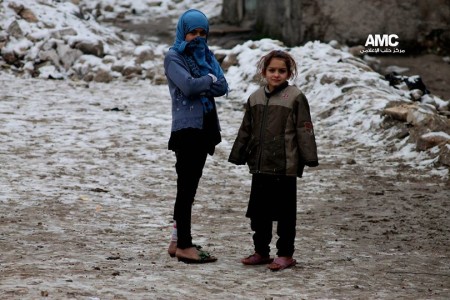The United Nations has been challenged to increase and improve aid to hundreds of thousands of displaced people in Syria.
More than 30 legal experts have written a letter about the UN’s “overly cautious” interpretation of its mandate to deliver humanitarian aid.
The lawyers argue that UN humanitarian agencies have the legal right to defy the Syrian regime’s “arbitrary” refusal to allow food aid and medical supplies to reach areas under insurgent control:
They cannot, however, lawfully withhold consent to weaken the resistance of the enemy, cause starvation of civilians, or deny medical assistance. Where consent is withheld for these arbitrary reasons, the relief operation is lawful without consent.
The stakes for correcting this overly cautious legal interpretation are high – hundreds of thousands of lives hang in the balance. Humanitarian organisations will surely face enormous risk in carrying out cross-border relief operations and may decline to do so.
Meanwhile, aid organisations have written to UN Security Council members asserting that a lack of coordination by the UN means assistance is not reaching civilians in priority areas.
The NGOs claimed that in other areas, the UN does not inform other aid groups when it brings aid, leading to “potential duplication” of deliveries.
The UN estimates there are now more than 9 million people — out of a pre-conflict population of about 22 million — in need of humanitarian aid, of whom 3.5 million are in areas that are hard to reach.
Another 2.7 million Syrians are registered refugees outside the country.

